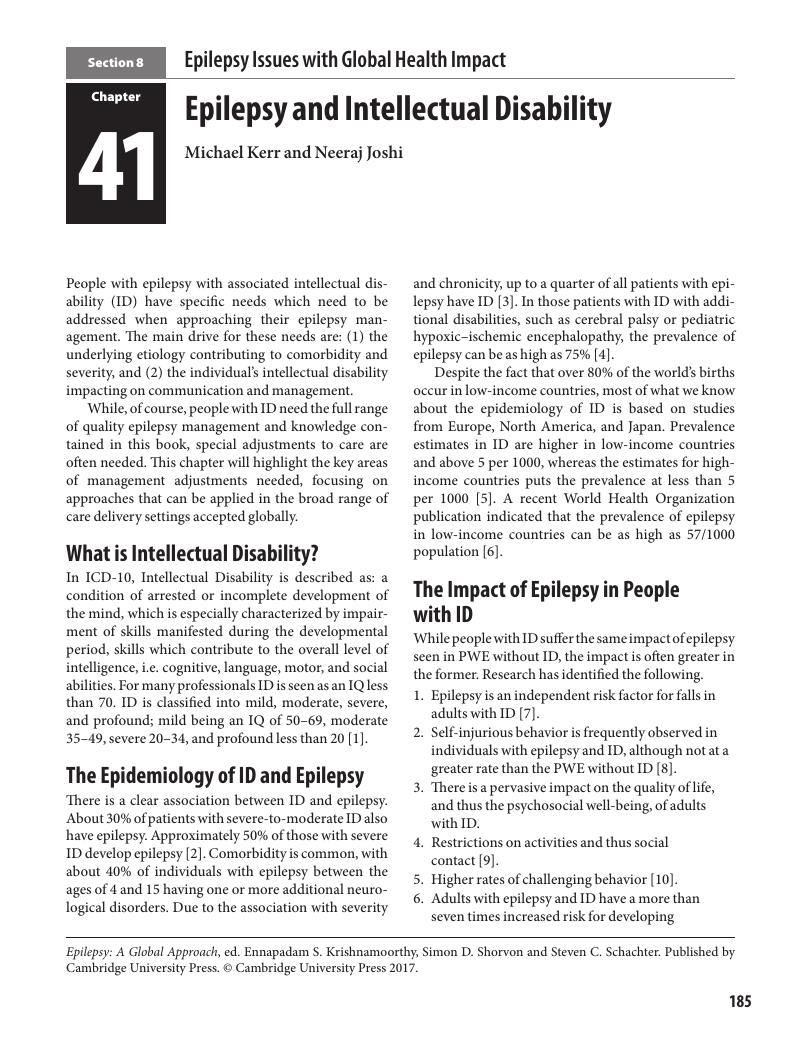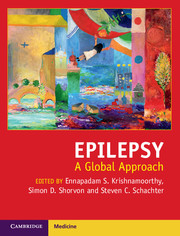Book contents
- EpilepsyA Global Approach
- Epilepsy
- Copyright page
- Dedication
- Contents
- Contributors
- Acknowledgments
- Section 1 Editorial Introduction
- Section 2 Infective Causes of Epilepsy
- Section 3 Consequences of Epilepsy
- Section 4 Comprehensive Epilepsy Care
- Section 5 The Medical Management of Epilepsy
- Section 6 The Surgical Management of Epilepsy
- Section 7 Non-Pharmacologic Management of Epilepsy
- Section 8 Epilepsy Issues with Global Health Impact
- 39 The Epilepsy Treatment Gap
- 40 Intractable Epilepsy
- 41 Epilepsy and Intellectual Disability
- 42 Legal Implications of Epilepsy and Epilepsy Management
- 43 The Global Campaign Against Epilepsy
- 44 Integrated Thought
- Section 9 International Perspectives
- Index
- References
41 - Epilepsy and Intellectual Disability
from Section 8 - Epilepsy Issues with Global Health Impact
Published online by Cambridge University Press: 13 April 2017
- EpilepsyA Global Approach
- Epilepsy
- Copyright page
- Dedication
- Contents
- Contributors
- Acknowledgments
- Section 1 Editorial Introduction
- Section 2 Infective Causes of Epilepsy
- Section 3 Consequences of Epilepsy
- Section 4 Comprehensive Epilepsy Care
- Section 5 The Medical Management of Epilepsy
- Section 6 The Surgical Management of Epilepsy
- Section 7 Non-Pharmacologic Management of Epilepsy
- Section 8 Epilepsy Issues with Global Health Impact
- 39 The Epilepsy Treatment Gap
- 40 Intractable Epilepsy
- 41 Epilepsy and Intellectual Disability
- 42 Legal Implications of Epilepsy and Epilepsy Management
- 43 The Global Campaign Against Epilepsy
- 44 Integrated Thought
- Section 9 International Perspectives
- Index
- References
Summary

- Type
- Chapter
- Information
- EpilepsyA Global Approach, pp. 185 - 188Publisher: Cambridge University PressPrint publication year: 2017



